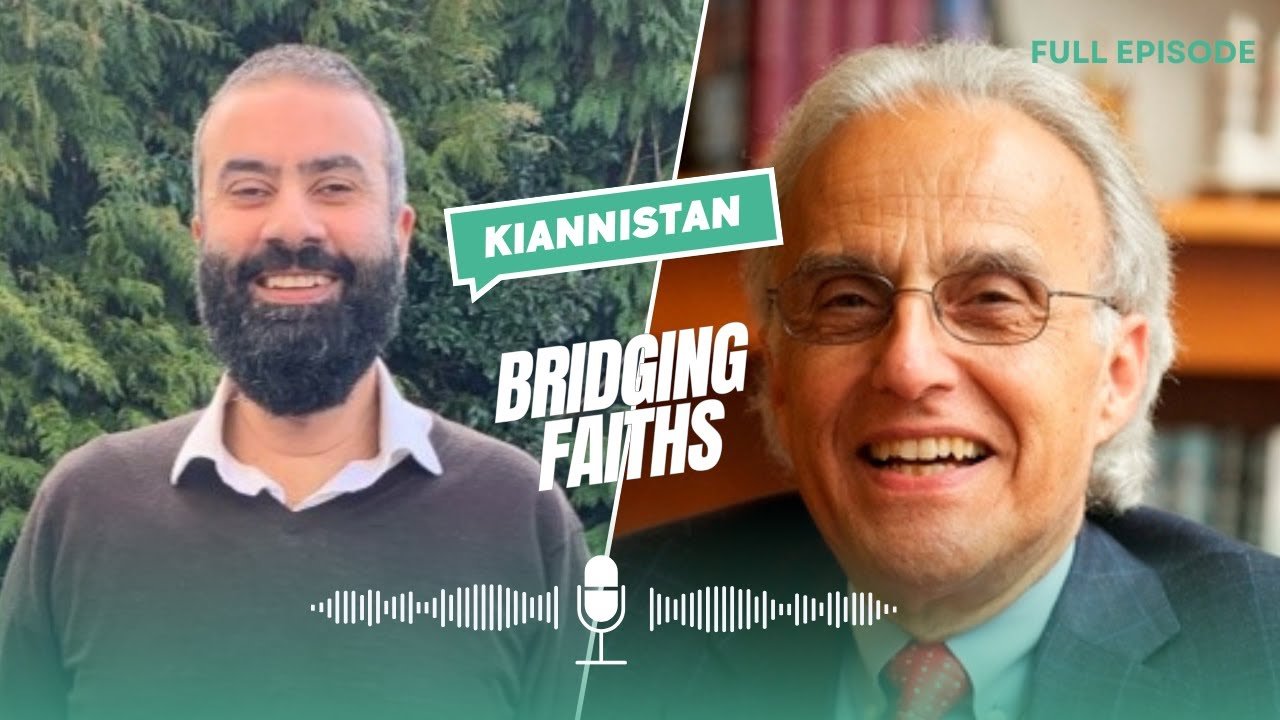Bridging Faiths: John Esposito on Understanding Islam and Building Respectful Dialogue
In Episode 21 of Kianistan, we sit down with the brilliant and respected Professor John Esposito, founder of Georgetown University’s Center for Muslim-Christian Understanding, to explore the intersection of Islam, the West, and interfaith harmony. Known globally for his work on religion, politics, and dialogue, Professor Esposito offers a deeply personal and scholarly perspective on what it takes to foster understanding across faith traditions in an increasingly polarized world.
🎥 Watch the full conversation on YouTube:
A Scholar’s Journey into Islam
John Esposito’s entry into Islamic studies wasn’t pre-planned—it was, as he puts it, “spirit-driven.” Initially trained in Catholic theology, a single class on Islam during his PhD opened up a world that pulled him in intellectually and spiritually. Studying alongside Muslim students at Temple University, Esposito experienced Islam not only through books but through the lived experiences of his classmates, making it come alive in profound ways.
This path eventually led him to become a government advisor across multiple U.S. administrations and a prolific writer with over 55 books translated into more than 50 languages.
Faith and Politics: From Iran to Trump
Esposito gives a rich historical overview of America’s awakening to the Muslim world, starting with the 1979 Iranian Revolution. From being a religion largely invisible in Western consciousness, Islam suddenly became center stage—though often for the wrong reasons. Esposito critiques how shallow media narratives and political agendas have distorted public understanding, turning Muslims into the “other” and Islam into a threat.
He also offers a sobering reflection on the Trump era and the resurgence of Islamophobia in both the U.S. and Europe. From politicians framing conflicts as a “clash of civilizations” to the misuse of “anti-Semitism” accusations to silence criticism of Israeli policy, the landscape for honest discourse has grown perilous.
Debunking Myths About Muslims
The episode addresses several common misconceptions about Muslims and Islam:
-
“Muslims can’t integrate into Western society”: Esposito counters this with evidence of political, academic, and civic participation by Muslims in both the U.S. and Europe.
-
“Islam is inherently violent”: He calls this claim historically ignorant, noting the long record of violence committed in the name of Christianity and the political—not religious—drivers of many so-called “Islamic” conflicts.
-
“All terrorists are Muslims”: Esposito refutes this with clear data and points out the disproportionate media coverage that fuels this stereotype.
Culture vs. Religion: Clearing the Fog
One of the highlights of the conversation is Esposito’s reflections on the difficulty of distinguishing between Islamic teachings and cultural practices. Having studied Islam in the Middle East, South Asia, and Southeast Asia, he emphasizes the diversity within the Muslim world—and warns against blanket judgments that conflate culture with core theology.
He also comments on how different religious traditions have different sensitivities—for example, Muslims may feel deeply offended by depictions of the Prophet Muhammad (PBUH), whereas Christians may react differently to critiques of Jesus. These nuances, he argues, are often lost in cross-cultural interactions, fueling misunderstanding.
A Life Among Believers
Despite his lifelong engagement with Islam, Esposito is not a Muslim—and that question comes up often. His response is thoughtful and heartfelt: while he remains a committed scholar of Islam, he has immense respect for the tradition, and many Muslims see him as someone who truly understands their faith.
In fact, he jokes that one day he might title his memoir “Among the Believers”, both as a tribute to his journey and a nod to how deeply he’s been immersed in Muslim communities.
Final Reflections: Dialogue in Divided Times
Professor Esposito believes we are in a dangerous moment of rising religious nationalism, Islamophobia, and deepening polarization—not just between Muslims and non-Muslims, but within all societies. Yet, he sees hope in interfaith dialogue, academic openness, and the younger generation’s greater exposure to diversity.
🎥 Watch the full episode on YouTube here: [Click Here]
📌 Don’t forget to like, subscribe, and share to support conversations that promote understanding over division.

